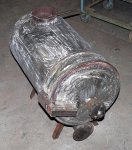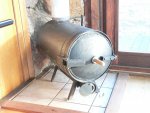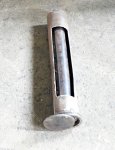I have read the problems are not from a common BBQ or RV style propane tank, but with the large stationary tanks.
The smaller tanks have a short life and do not get re-filled very often compared to a stationary tank.
On the other hand, a stationary tank might have a service life of 30 years and be re-filled a couple times every year or more. What can happen is the rotten egg smell may condense back into a thin oil on the walls of the tank. This will seep into pores in the metal, corrosion, etc. That make it more difficult to wash out.
The tank gets retired, someone wants to cut it up into a big BBQ, they wash it out with soap and water, etc. and that will get rid of the LPG for sure. But then they start cutting it with a torch...
What happens?
The thin oil heats up, becomes vaporized, and is now in a flammable mixture within the tank! Most likely there is NOT enough energy for an explosion of significant proportions. But at the very least when it sets off you're gonna need to take a short day to go change your shorts. On the upper end of possibilities, if the tank is mostly cut through when the oil vapor lights off then there could be enough energy to toss heavy metal around and hurt someone, or worse!
I have a 1,000 gallon LPG tank I purchased from a LPG service. They sold it to me 'certified' as 'clean of LPG' by soap/chemical bath rinse. But I was warned it could 'flare up' if cut with a torch and to just take precautions for such a situation. Every hot day for three years I could smell the rotten eggs in that 'clean' tank!
Ultimately, the message I think needs to be emphasized is this: If you are not absolutely certain of what you are about to try, if you are not absolutely confident in the technique or process you are about to try, if you have any doubt about the outcome, THEN DON'T TRY IT!
This is just an opinion - I am NOT giving advice.





